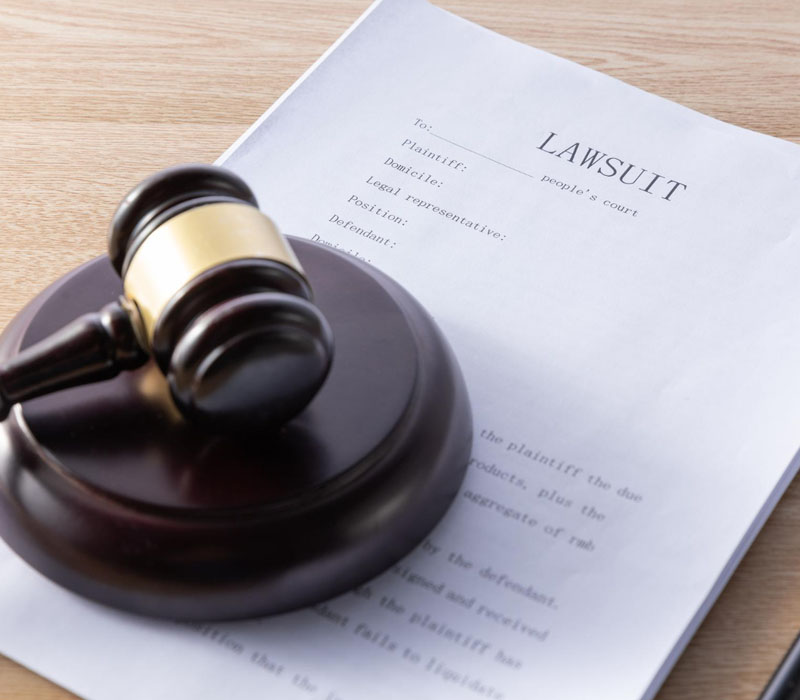
step 1
Find out if there are any outstanding debts on the inherited property. These can include liens, unpaid property taxes, mortgage, or a home equity loan. Knowing about all these things helps you establish what options are available to you, and work out your next steps with the house.
If there are overdue payments, you should bring these, and the mortgage up to date. This helps you avoid legal problems. Talk to the right creditors or mortgage holders, and make sure you have the proper estate and property documents when you contact them. Taking care of these financial issues early will make it easier for you to sell the inherited property – indeed, “time is of the essence where mortgage issues are concerned,” says Somita Basu, an estate planning attorney in California.


Step 2
Inheritance does not always mean you get the property right away. In Ohio, the time it takes to become the owner depends on the necessary legal process for that specific property and situation. If you get the property through a living trust or a life estate deed, you can usually get ownership faster. You may even get to sell the inherited house right away. But if the property has an open probate court hearing, it can take months or even up to a year.
Moving the legal ownership of inherited property to your name is an important first step before you can sell it. Go to the county recorder’s office to make sure the property title matches what it should be.
If you do not have clear title papers, selling may take longer or cause arguments with possible buyers. Talk with estate administrators or a lawyer about the best way to handle this. After you turn in the transfer papers and they are handled, you can sell without worrying about breaking any law.
If you inherit a house with an open probate process, you will need the court to say the will is real and settle the estate before you can get the inherited home. Sometimes, problems or delays can come up in this legal process, so you should be ready for this to take longer. It can help to talk to a probate attorney or the person in charge of the estate regarding the sale of the property. They know about probate court and can tell you how soon you might become the owner. Once you know your timeline, you can get ready for the next steps. You will know when you can sell the inherited house.
If the home is not yet in probate (and even if it is), you can elect to work with a guide from Heir Solutions, to seek help with no money out of pocket, and a reduced timeline of weeks, not months.
step 3
If there are a few people who will inherit the property, you may need to work together so the sale goes as planned. Ideally, you would have everyone agree on picking one person to be the personal representative. This person will manage the legal steps for the property and take care of the sale. Try to pick someone who is good at dealing with tasks and feelings, because this job needs a person who can handle legal papers and make choices about the property with the guide.
If someone does not agree, the first thing to do is get the help of a professional, like a mediator or a lawyer, to resolve this problems. Keep in mind, the personal representative should follow all local rules and make sure that the money from the sale is split appropriately between the heirs. Choosing the right person is important to stop delays when passing on the inheritance. After you pick the personal representative, you can start to take care of the property together.


Step 4
To manage your money well after someone passes away, opening an estate account can be a good and helpful step. This special bank account is made in the name of the person who died. You use it to bring together things like the money from the sale of property, any debts, and the bills that still need to be paid. This helps keep things clear for everyone and stops fights among the people who are set to inherit from the estate. Often, this will help demonstrate both trust, and also how much (or little) is actually available. Sometimes, this account will be negative, and you may need to “prop up” the estate until closure.
The estate account is for paying bills that everyone shares, like mortgage payments, power bills, and property taxes. It helps the person in charge, called the personal representative, to do their job. Each time you use the account, there is a record of it. Sometimes, you might need to get the probate court to approve what you do, based on how big or difficult the estate is. Once this account is open, it may be easier for you to process financial requirements while going through the sale.
step 5
Selling your inherited house for cash is a quick way to get the value from the property, especially when there may be a protracted lien-removal requirement otherwise. Cash buyers or companies like Heir Solutions can give you an offer very quickly, and will even take over the property with it’s liens in place, squatters in place, and with your multiple heirs all at once. You do not have to spend time or money on fixing or upkeeping the house, getting it ready, or showing it to people. Removing the liens, not needing to make tax and mortgage payments, and not having to deal with a sale over an extended time, are usually real benefits.
If you choose a cash sale, you do not have to worry about additional legal wrangling, like a buyer needing mortgage approval, or just continuing to make payments, or possibly dealing with squatters. Cash offers are usually lower than market value, but you do not typically have closing costs, commission fees, and you’re able to leave the liens in place for the buyer to take over. Cash sales also get you whatever monies are owed after liens, now . If you want to keep this simple and fast, cash buyers – or local guides like Heir Solutions – are a good option.


Step 6
Navigating probate can be very tough, expensive, and time-consuming. If you choose to settle the liens yourself, you’ll need to work with a real estate agent who knows a lot about probate sales. This agents will need to have a strong understanding of both the local market and the way probate court works. They will need to know how to set prices so you get the best price for your inherited property, considering all the heirs, liens, and the condition of the house.
They should help you market your real estate well. They also take care of talking to buyers and work to get you the best price possible. “Treating inherited properties with respect and showing them well is important,” says Melissa Harmel, a probate real estate expert. Working with the right agent gives you trusted help when you need to make big choices about your inherited property. Going this route opens you up to commissions, and so forth – so be aware of the extra expenses, and make sure the heirs all agree to shoulder these costs after the liens, closing costs and legal fees are considered.
step 7
Selling a house that more than one heir has can be difficult, especially if not everyone agrees. In this case, a mediator can really help. The mediator does not take sides. This person helps everyone get to a deal about things like the price, if any work needs to be done to the house, or when to sell. Heir Solutions is your local guide in Columbus to work with these complex situations, and provide counsel through the process – aiming to make a quick sale for all heirs.
Engaging a mediator can stop existing problems from boiling over, and may helps the heirs avoid going to court and probate, which can use a lot of time and remaining money. If one person wants to keep the house or wait for a much bigger profit, a mediator can help the group say what they want and find a way to move forward. Having this help keeps family stress lower and makes it easier for everyone to sell together. It is better to try to work together than to box or have fights about the property.


Step 8
Make small changes that really boost how your inherited house looks before you try to sell it, if you’ve chosen to clear the liens and sell in the market. You can add fresh coats of neutral paint, put in new vinyl flooring, or work on better landscaping to improve the curb appeal. These updates help the property look much better on the real estate market without needing big, costly renovations.
It can be helpful to ask your local real estate agent about which projects usually give the best returns. Try not to do big jobs like kitchen remodels because they might not make you enough money back. It is smarter to focus on lighter fixes so your house can catch the interest of Ohio buyers and you don’t spend too much.
step 9
When you sell inherited property in Ohio, you need to think about capital gains taxes. This tax is only for the increase in the property’s value since the original owner passed away. The value is set again at the fair market price when the owner dies, which is known as the step-up in basis.
Tax Type | Details |
Capital Gains Tax | Tax on the property’s value increase after you inherit it |
Step-Up in Basis | New value set at the fair market price when the owner dies |
Home Sale Tax Exclusion | $250,000 for singles, $500,000 for married couples |
It is a good idea to talk to tax pros so you stay on the right side of the law and save as much as you can on taxes during the sale. Knowing about exclusions can also help you get more money from your sale of any inherited property in Ohio.

Yes, selling an inherited house as-is can the best choice if you want a fast cash sale. You will not need to pay for any repairs or further tax or mortgage payments in this scenario.
Clearing out extra things, fixing small problems, and making the front look nice can be useful steps. Making sure the home looks great by doing a deep cleaning. You can also add some touch-ups, like new paint and good staging, to help the home stand out. Getting a professional to check the home’s value will help you set the best price that fits buyers in Ohio. Alternatively, clients who work with Heir Solutions don’t need to complete any further steps, and sell as-is, with repairs needed, and liens and sibling disputes in place.
Step-up in basis changes the value of inherited property to what it would sell for at the time the owner dies. Taxes are paid only on gains made after this new value is set. This way, people are not charged based on what the original owners paid for the property.
Schedule a visit to get a no-obligation property
walkthrough and expert guidance